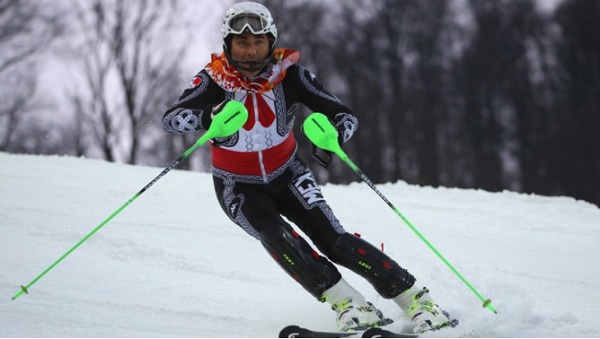The 2018 Winter Olympics were held in February, in and near Pyeongchang, South Korea. The games ended on February 25th.
The Norwegian team won more medals than any other country. Team Norway was awarded 39 medals, including 14 gold medals.
In second place was Germany with 31 medals (14 gold). Canada placed third (29 medals, 11 gold), and the United States was 4th with 23 medals, 9 gold.
The Netherlands placed 5th (20 medals, 8 gold) and Sweden was in 6th place (14 medals, 7 gold).
Host country South Korea had its best Winter Olympics medal count ever, with 17 medals (5 gold).
Switzerland and France each won 15 medals, including 5 gold medals each. Since Switzerland won 6 silver and 4 bronze, while France won 4 silver and 6 bronze, Switzerland placed #8 and France #9. Rounding out the Top Ten was Austria with 14 medals, 5 gold.
Of course, there’s a pattern here. The top teams at the Winter Olympics are colder climate countries, which makes sense. Warmer countries have difficulty training for winter sports, especially the outdoor skiing events. So, winter athletes from those countries train in colder countries.
A famous example was the Jamaican bobsled team back in the 1988 Calgary Winter Olympics, later portrayed in the Hollywood movie “Cool Runnings.” In order to add some conflict, “Cool Runnings” showed the Jamaican bobsledders being ridiculed by other competitors, especially East Germans. In reality they were treated well by other Olympians.
Mexico fielded a team at Pyeongchang, with four team members. That was four times as many as four years ago, at Sochi, Russia. In those Olympics, Mexico was represented by a one-man team, composed of the flamboyant Mexican-born European aristocrat, Prince Hubertus von Hohenlohe-Langenburg.
Von Hohenlohe competed for Mexico in six Winter Olympics: at Sarajevo in 1984, Calgary in 1988, Albertville (France) in 1992, Lillehammer in 1994, Vancouver in 2010, and Sochi in 2014. In 1984, 1994, 2010 and 2014, Hohenlohe was a one-man team.
In six Winter Olympics Hubertus von Hohenlohe never won a medal, but in an interview he summed up his sporting philosophy thusly: “If you cannot win, then at least be stylish.”
For more information on Hubertus von Hohenlohe see my article from four years ago entitled, Mexico’s One-Man Winter Olympics Team and Haute Style Leader.
Historically, Mexico’s first participation in a Winter Olympics was in the 1928 Games in St. Moritz, Switzerland. Mexico sent a five-man bobsled team. After that, Mexico did not participate again until the 1984 Winter Olympics in Sarajevo, which was Hubertus von Hohenlohe’s first foray as a Mexican Olympian, and a one-man team.
Mexico participated in the 1988 Calgary Winter Olympics with 11 athletes, including Von Hohenlohe, its biggest Winter Olympics team thus far.
Four years later, Mexico sent a team to the 1992 Albertville Winter Olympics with its biggest Winter Olympics team ever of 20 athletes, including Von Hohenlohe.
In the 1994 Lillehammer Winter Olympics, Mexico was back to Hubertus von Hohenlohe as a one-man team.
Mexico did not send a team to the 1998 Nagano Winter Olympics. But in 2002, Mexico sent 3 athletes (not including Von Hohenlohe this time) to compete in the Salt Lake City Olympics (of which Mitt Romney was President and CEO of the Organizing Committee).
Mexico did not send a team to the 2006 Turin Olympics, but in 2010 it was back to Hubertus von Hohenlohe as the one-man team in the 2010 Vancouver Winter Olympics. In 2014, it was Von Hohenlohe as a one-man Team Mexico again, at the 2014 Sochi Olympics.
Von Hohenlohe tried out for the 2018 Winter Olympics but failed to qualify this time. Ever the good sport, the aristocrat contributed to Team Mexico by designing the suits for Mexico’s alpine skiers. In what was probably an Olympic first, the Von Hohenlohe-designed ski suits went with a Day of the Dead theme (click here to see).
This year’s Winter Olympic team consisted of four skiers: Rodolfo Dickson and Sarah Schleper in Alpine skiing, German Madrazo in cross-country skiing, and Robert Franco in freestyle skiing. None won a medal.
Looking ahead, the 2022 Winter Olympics is scheduled to be held in China, in the capital Beijing and in next-door Hebei province.
By Allan Wall
Allan Wall, an educator, resided in Mexico for many years. His website is located at http://www.allanwall.info.



